Sociology Report: Socioautobiography on Mother Teresa and Society
VerifiedAdded on 2022/11/03
|8
|429
|59
Report
AI Summary
This report presents a socioautobiography focused on the life and impact of Mother Teresa, analyzing her actions and beliefs through a sociological lens. The report explores several key social concepts, including social class, conformity, norms, deviance, subculture, and role, illustrating how Mother Teresa's life exemplified and influenced these concepts. It examines how her dedication to serving the impoverished and marginalized challenged social norms and expectations, impacting society. The report provides a concise overview of the concepts and their relevance to Mother Teresa's life, supported by references. The conclusion emphasizes the positive impact of these concepts on society, reflecting on how her work has inspired change.
1 out of 8
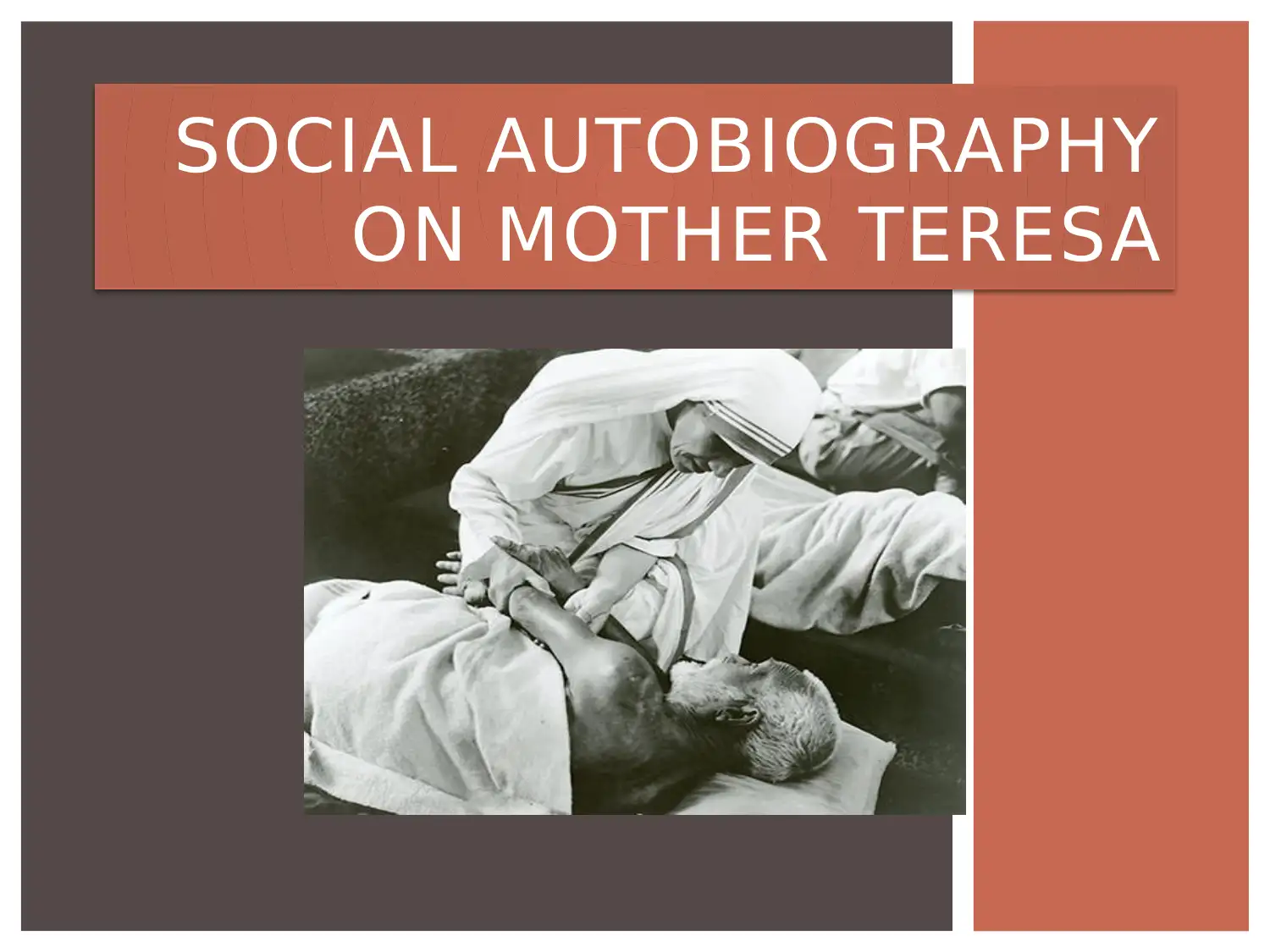
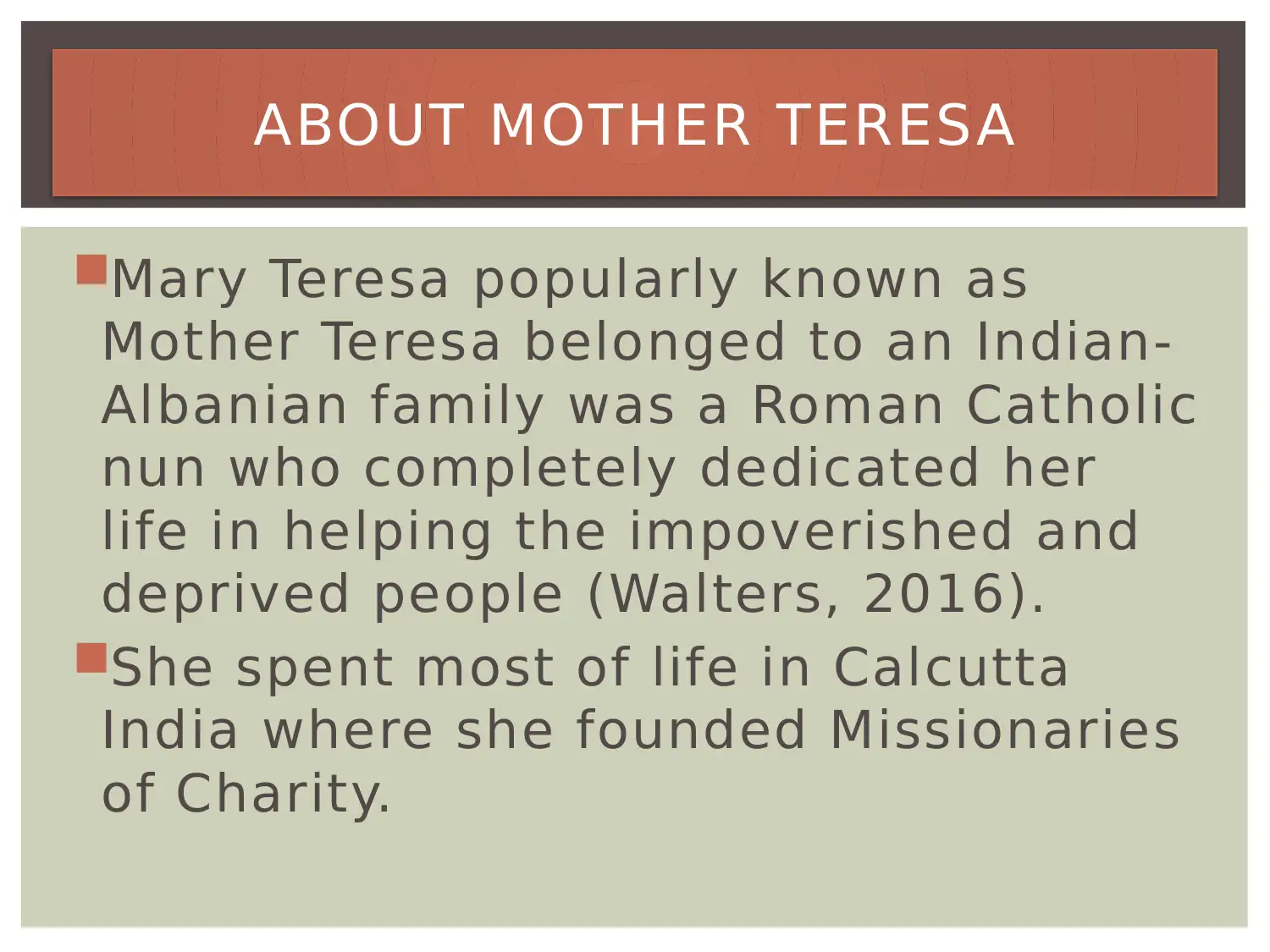
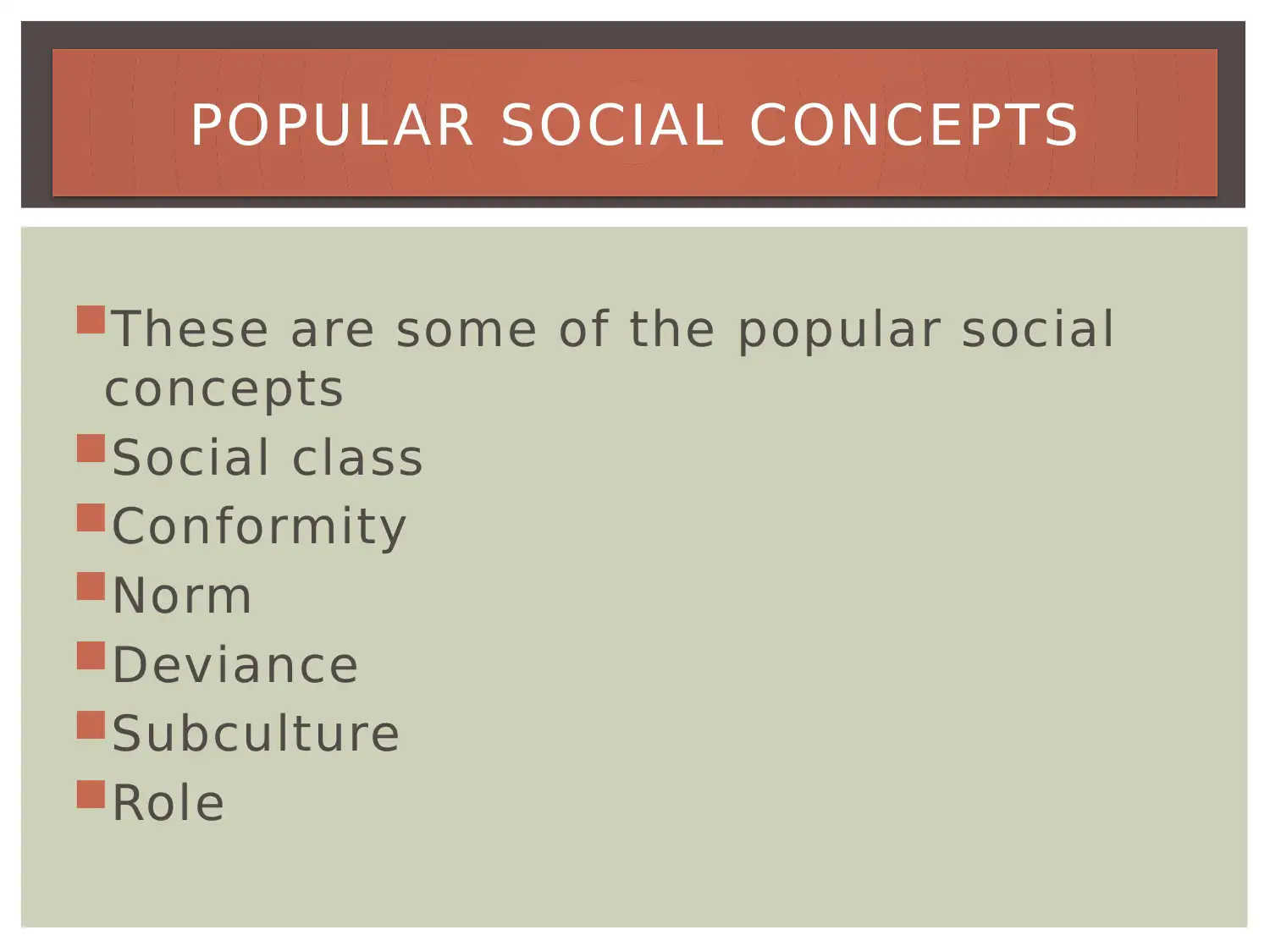

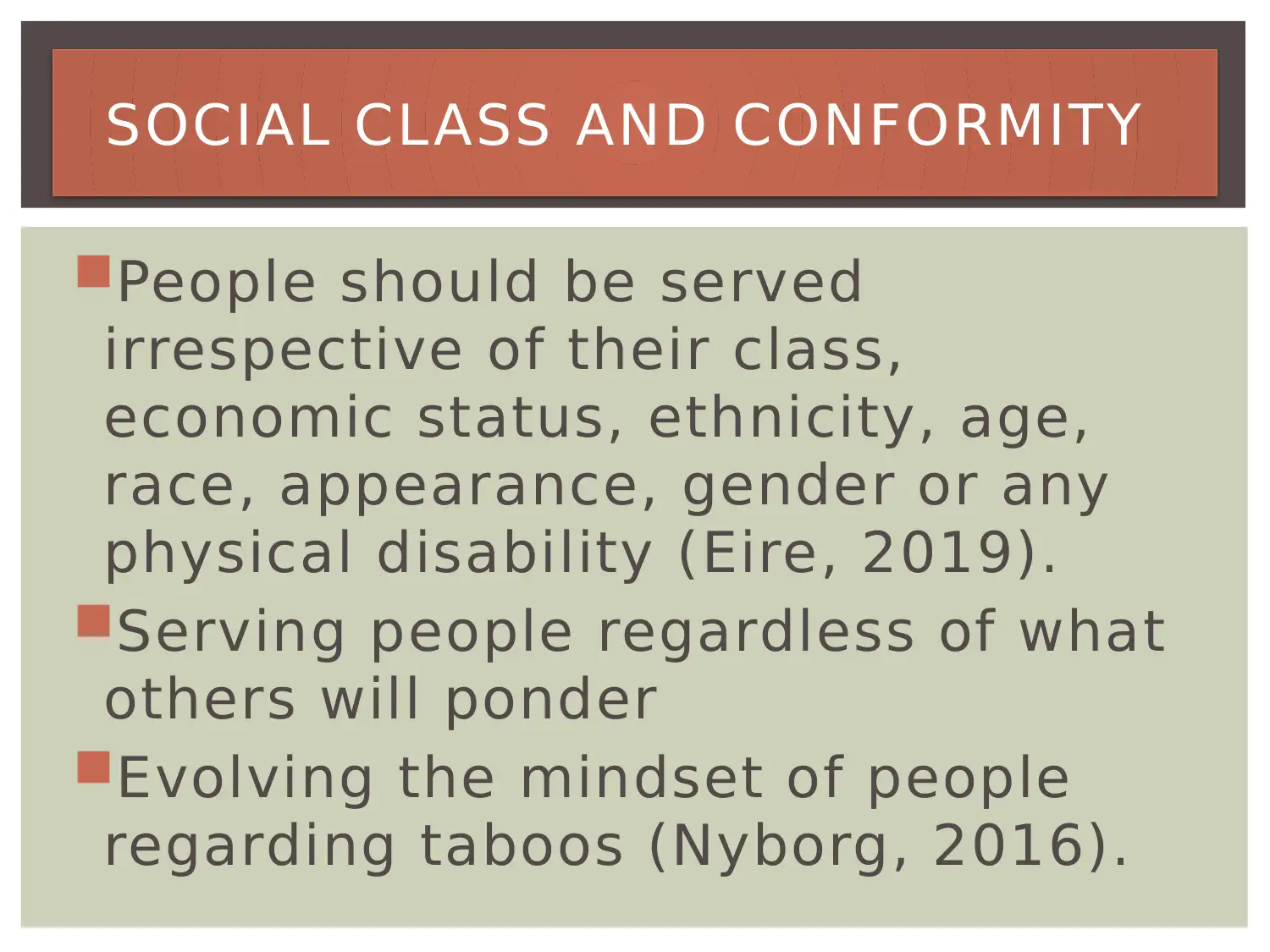
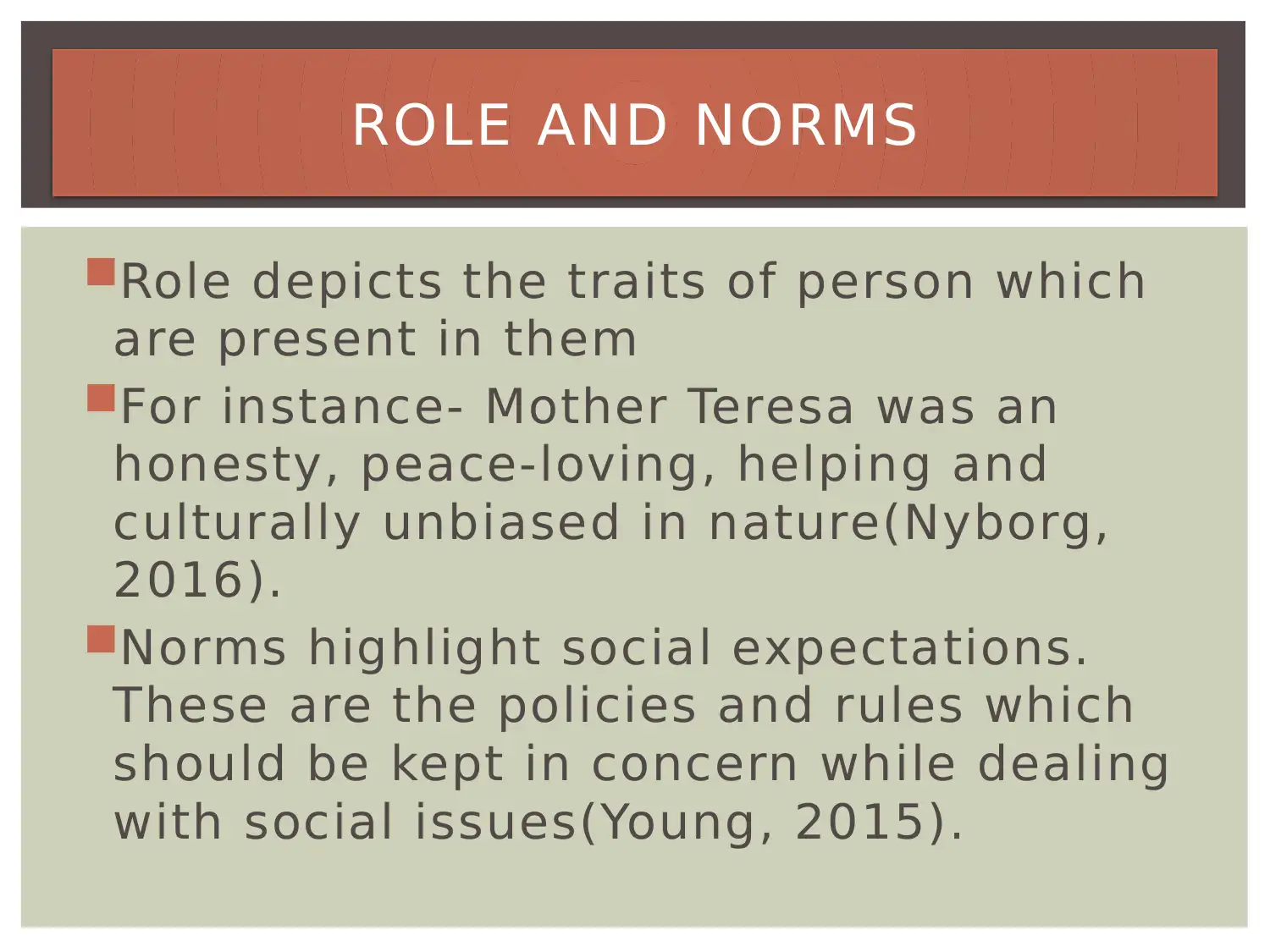
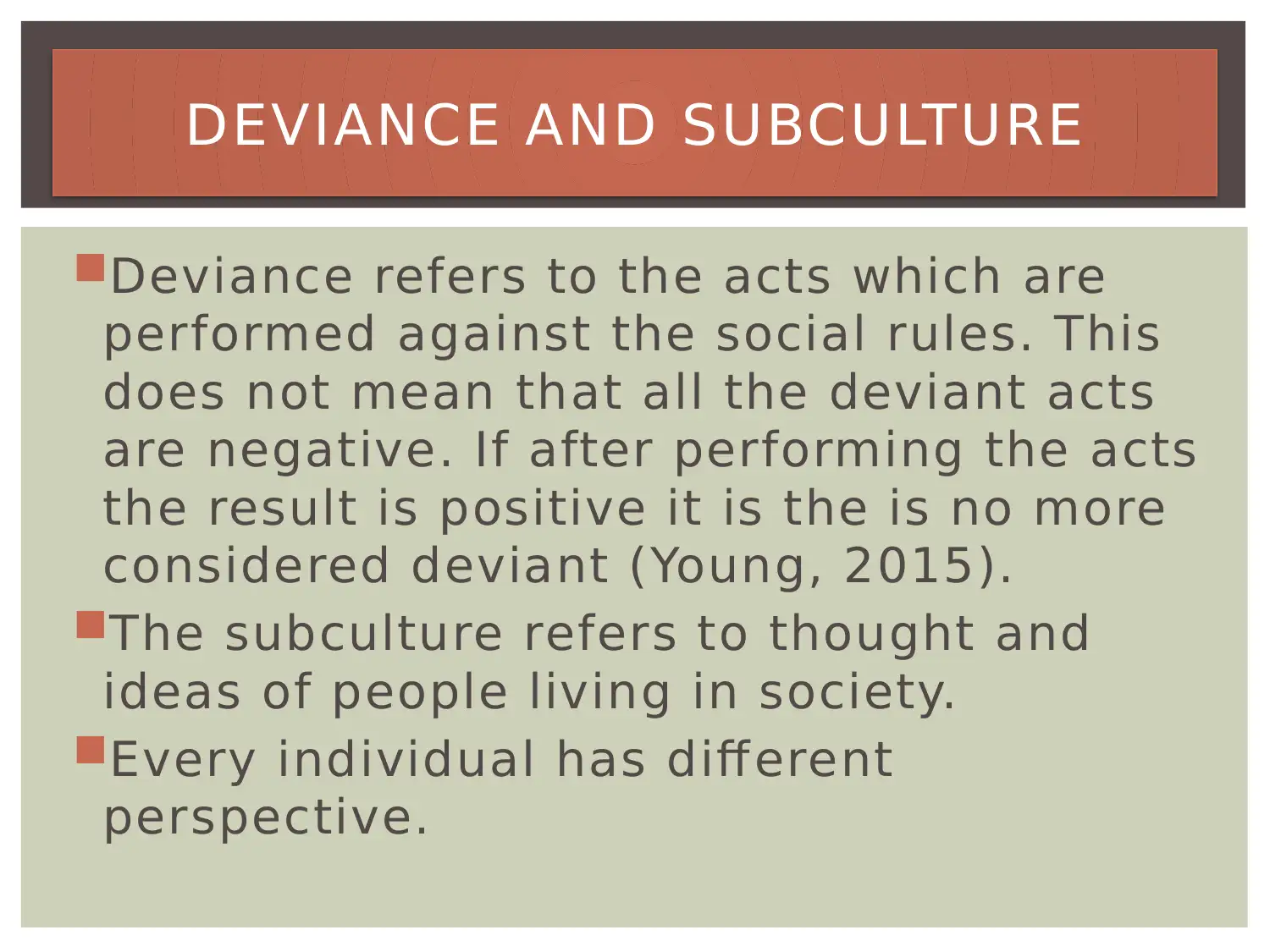
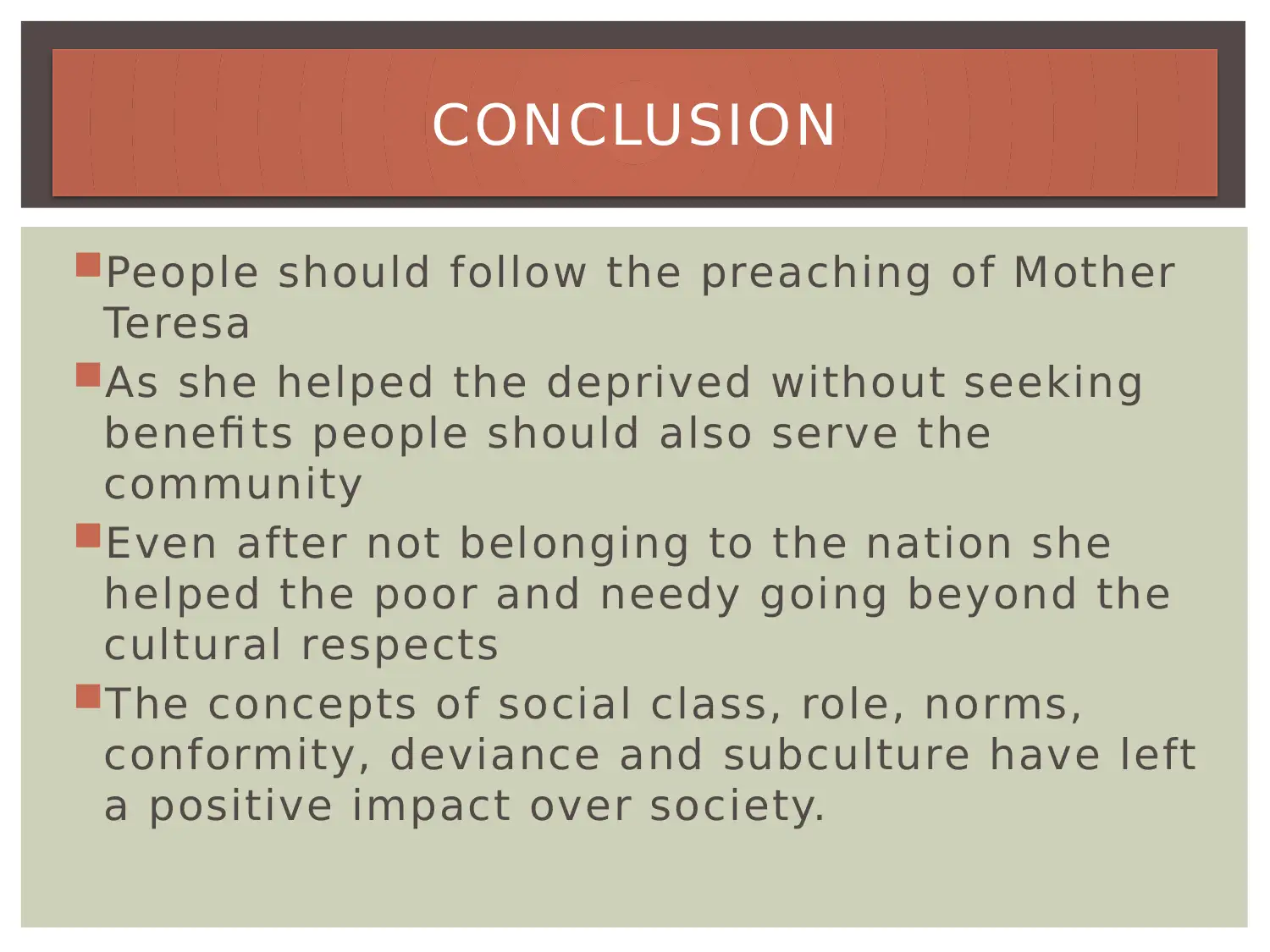
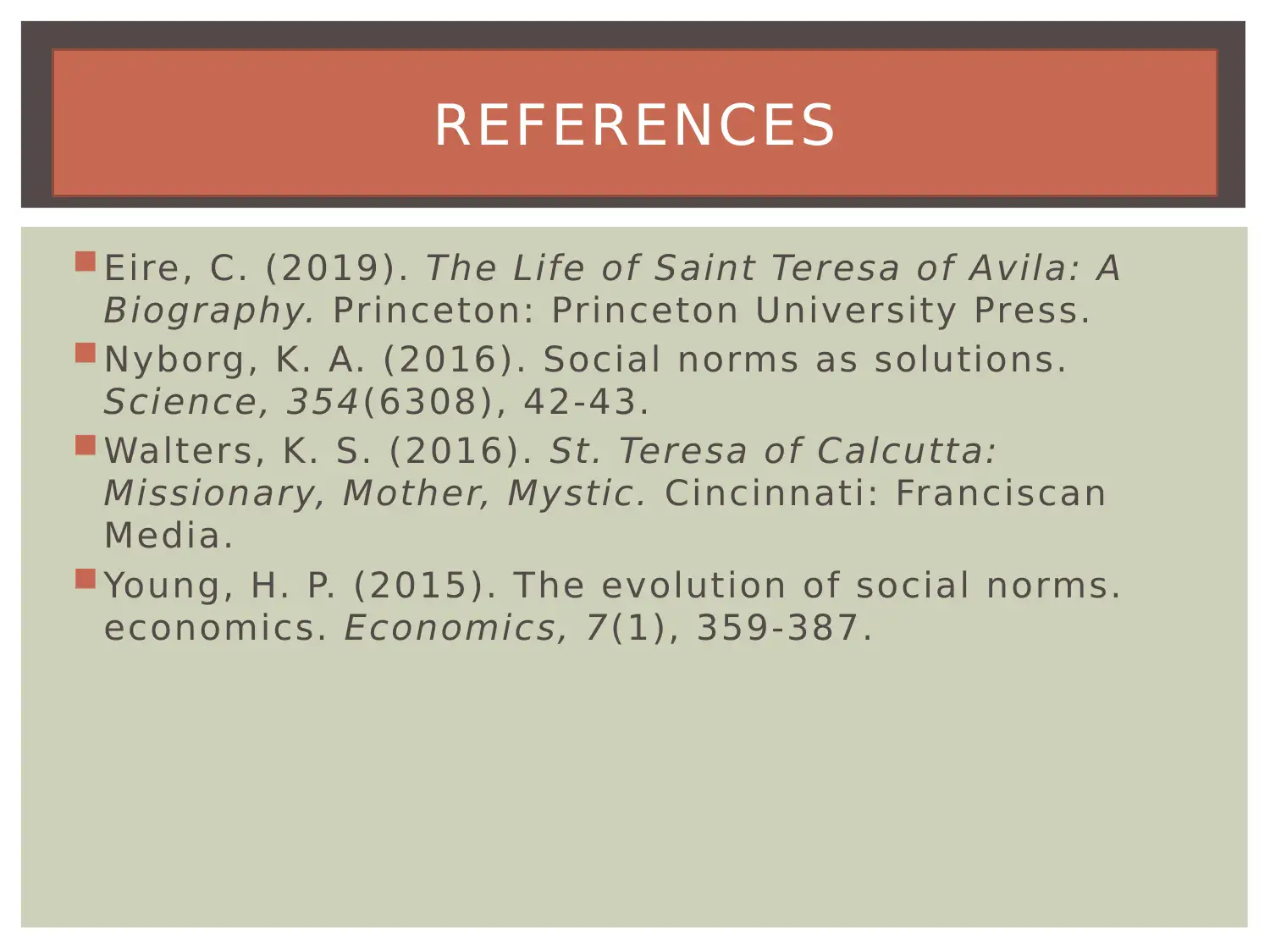

![[object Object]](/_next/static/media/star-bottom.7253800d.svg)